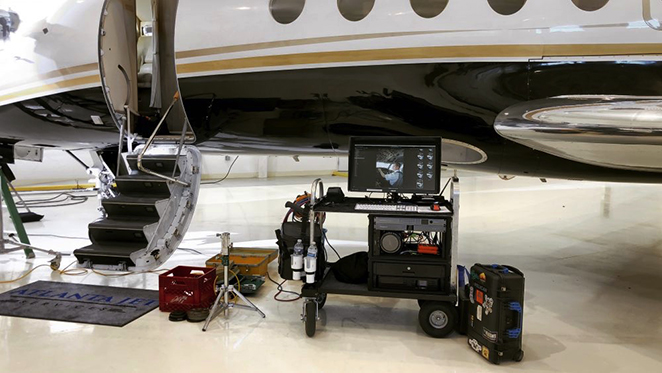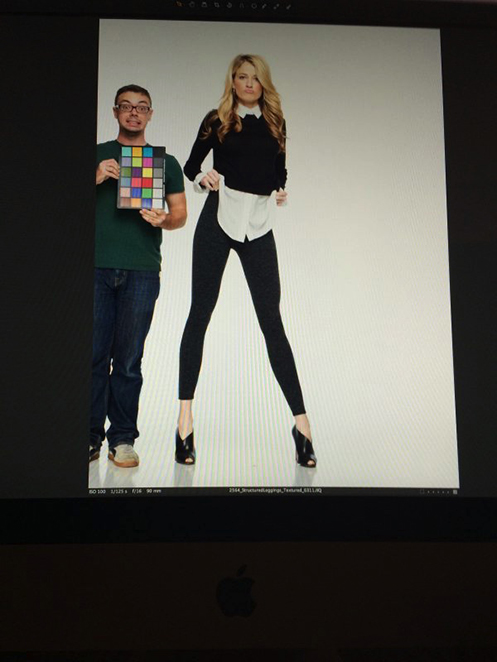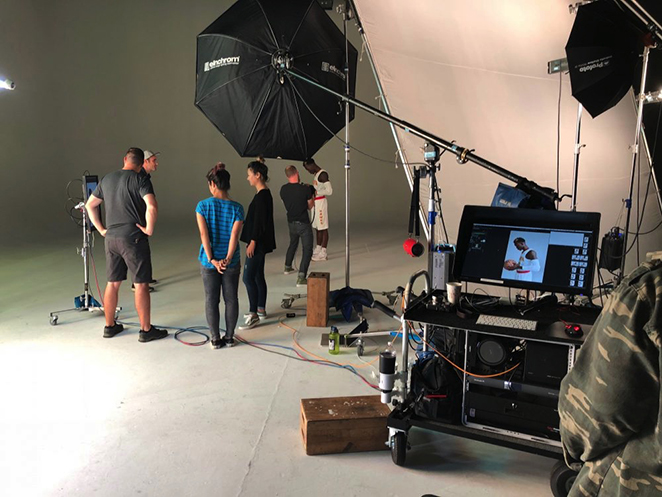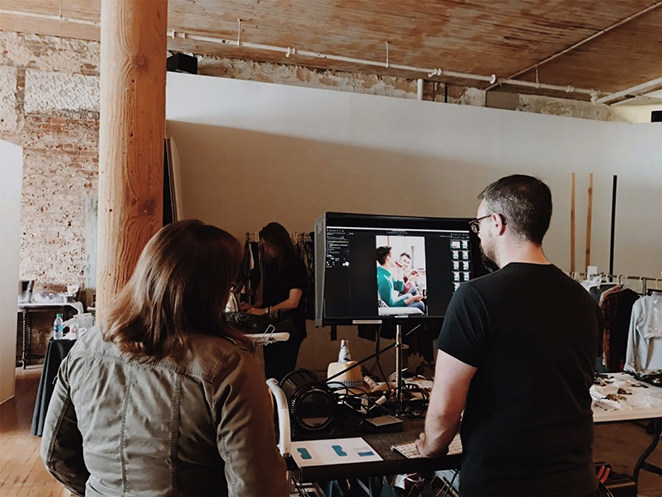CI Digital Tech Spotlight Brian Merwin

How did you begin your career in the photo industry?
Like a lot of us, I got started in photography as a hobby and slowly started picking up small shoots on the side while holding down a somewhat stuffy corporate office job. At a time when I was starting to become extremely burned out in the corporate world, my photography was also starting to pick up steam. Mostly portraiture, live events and a wedding here and there. The Usual stuff. While I really do enjoy certain aspects of portraiture, it quickly became apparent that I wasn’t well suited to shooting weddings and events, and that frankly shooting “The Usual Stuff” wasn’t going to work for me. I grew up in West Michigan, which isn’t a hot-bed of the advertising world which meant it’s time to start looking into photo schools and other markets. Ultimately I landed on Atlanta for a variety of reasons, so I started the ball rolling. One of my consistent side-gigs at the time was as the staff photographer for a local burlesque/vaudeville show. (It beats the heck out of weddings, I assure you). Right around the time I was planning to give notice for my corporate job and move the show was about to embark on their first national tour, and invited me to join them. So my first “big time” photography gig was shooing this show full of my friends as we drove around the country for a month. All 18 of us with just an RV and a mini-van. It was exactly as crazy, and challenging, and fun as you’d imagine.

At what point in your career did you realize you wanted to become a digital tech?
Before I started freelancing in the photo & film industry, I spent over a decade in the corporate IT world so it was a very logical jump. Most of the digital techs I know are coming at it as photo assistants who feel a little tech savvy and see an opportunity for a higher day rate. Given that I’ve performed nearly every IT role there is (starting on the front lines of Internet Help desk back in the dial-up days, all the way to Director of IT) and I’ve got nearly another decade of experience with all the various camera systems on the market, I bring quite a lot more to the table than your average photo assistant.

What are some of the highlights of your work?
Day to day, the main thing for me is that as a digital tech, I get to employ the creative part of my brain right alongside the creative part which is always extremely satisfying. Beyond that, I get to travel a bit. I get to meet some interesting, and weird people. Last year, for example, I worked on projects on multimillion dollar film sets, worked with a handful of actual celebrities (and a few that thought they were a big deal). I’ve worked in fully automated manufacturing facilities (SO MANY ROBOTS), the tops of skyscrapers, miles into the forest, mountain tops, beaches, a handful of private airports, and on one occasion a stockyard and an industrial dairy. Some jobs are completely brutal, but most are fun and fascinating. Also, most of the time I get to be the DJ and play my own music because I always pack a beefy Bluetooth speaker in my kit, and photo shoot jams are essential. Ha.

What are your onset essentials?
I have a “Pelican case of importance”. Ha.
My goal is always to have that one obscure little thing that saves the day. (Which will absolutely get you hired time and again).
It’s always evolving, but my current kit looks something like this:
-Mulitple tether cables, and active extensions (for nearly every camera system)
-Powered USB Hub -USB thumb drives (for file transfers on the fly)
-USB thumb drives (loaded with tech tools in case of emergency)
-Pocket Wizards (and various sync cables)
-Color Checker cards -LCC card -Light meter
-CF/SD/CFast cards -Multiple card readers
-Various Thunderbolt 2 and 3 adapters
-Spare Thunderbolt/USB 3/USB C cables (for when the client hands you a drive without a cable)
-Label maker (for hard drives)
-Cube taps & ground lifters -Outlet tester
-Arca Swiss clamp & QR plate
-3/8-16 to 1/4-20 thread adapters
-Small Tool kit (for field repairs on computers or cameras)
-Lens & sensor cleaning kit
-Shock cord bungees (I use these for everything)
-AA/AAA Batteries
-Jerk Stoppers & a Tetherblock
-Small med kit (ibuprofen/alive/antacid/bandages etc)
-Sharpies
-Colored label tape
-Business cards (everywhere)
-High quality Bluetooth speaker (photo shoot jams are essential)
How do you market your brand to photographers?
Honestly? At this point it’s mostly word of mouth for me. I am extremely aware that bringing on a digital tech you’ve never worked with (or any crew for that matter) can be a major point of stress – if for no other reason than the fact that having a digital tech is often a luxury and is only an option on larger photo shoots. In the beginning, I spent quite a lot of time developing relationships with local assistants, vendors (including of course Capture Integration) and photographers and other digital techs. There’s no shortcut to that. It’s simply staying focused on doing a good job on set, communicating clearly, destroying problems (before the client notices) and slowly building trust and confidence with the local community. Once you’ve got that, word gets around on it’s own.

What advice would you give to someone that wants to become a digital tech in today’s industry?
It’s difficult to nail down a single “most important” thing to keep in mind for anyone considering being a digital tech. In many cases you’re the lynchpin to the entire operation, which comes with a great deal of responsibility. As a digital tech, most of my time is spent off set testing things inside and out so I can rapidly attack “issues” before they become “problems” and keep things flowing during the production – but you also need to be incredibly well organized, paranoid about asset management, focused and attentive, and do it all while remaining cool under pressure when things do go side-ways (because they will eventually).
Why Capture Integration?
Years ago, when I initially moved down to Atlanta, I was in photo school, and Dave Gallagher was gracious enough to host one of our classes in the main Capture Integration office. The class was pretty fascinating (at that point, I’d never even had my hands on a digital medium format system before) and the more research I did on the photo industry, it became abundantly clear that Capture Integration was an industry leader and working with many of the top photographers in the country. I was only a baby photo assistant at that point, but I knew right away that I wanted to build a relationship with these guys, and I’m glad I did.
Connect with Brian:
Website: brianmerwin.com
LinkedIN: BrianmErwin



